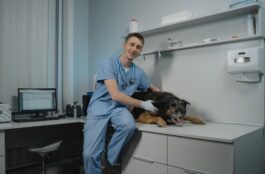
Getting a routine wellness check for your pets is their best opportunity to have a long and healthy life. It could feel like an unnecessary expense for most owners, especially if your pet looks just fine; however, keep in mind that most conditions don’t show their symptoms right away. During the checkup, your vet may ask you specific questions about your pet’s health or behavior. The procedure that will be done for your pet’s examination may depend on the observation of your vet.
Is the Wellness Examination Important?
Our pets age faster than us. That’s why it is crucial to make sure that they have regular checkups since they are more prone to diseases as they get older. It would also depend on your pet’s health status, breed, and lifestyle to determine how often they should have a wellness examination. If it’s your first time visiting a veterinary clinic to get your pet checked, here is what your veterinarian would most likely do. You can click here to learn more.
Observation
The very first thing your vet will do is to observe your pet. They will check your pet’s overall body condition to see if they have the appropriate weight and muscle. They will also check the skin to see if it is dry, if there is dandruff, and look for oiliness. The eyes will also be checked if there is redness, tearing on their cornea, and discharge. To see tartar build-up, excessive salivation, and periodontal disease, their mouth will also be checked. You can search online for “American Veterinary Hospital” to see more information.
Auscultation and Palpation
Same with how human lungs and heart are checked, your vet will also listen to their heart rate, rhythms, and murmurs. As for the palpation, your veterinarian will feel the lymph nodes in the neck, hind legs, and head to look for swelling or pain from touching it. They will also feel the abdomen in the areas of kidneys, liver, intestines, and bladder to assess if they appear to be normal and if there is any evidence of discomfort. Going online and doing research for more info would be helpful.
Questions and Recommendations
Prior to your consultation, it is important that you take note of your personal observations of your pet’s behavior at home. That is to be prepared for any questions your vet may ask regarding their lifestyle, exercise routine, diet, habits, bowel and urination patterns, and general health. This is also when your vet may recommend changes in their diet, vitamins and medications they should be taking, and instructions as to how you should respond to emergency situations based on their findings after the appointment.
Conclusion
Expect that there will be a lot your veterinarian will check for a thorough examination and accurate diagnosis about your pet’s health condition. Having a wellness check for your pets is vital in order for them to have and maintain optimal health. Don’t be afraid to ask questions, recommendations and share everything you observe at home. Keep in mind that even the smallest detail can be a big help to determine the status of your pet, so make sure not to miss or overlook anything during your discussion.


